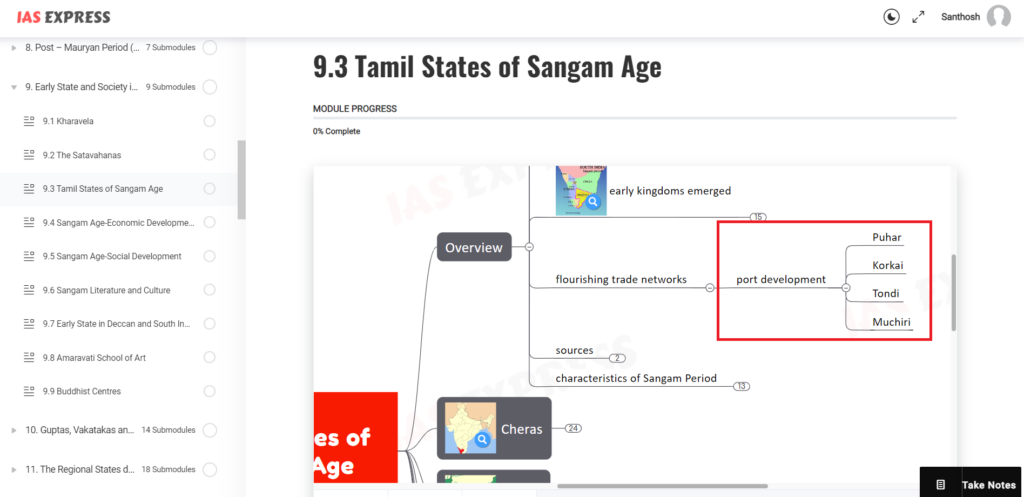With reference to ancient south india, Korkai, Poompuhar and Muchiri were known for?
[a] capital cities
[b] ports
[c] centres of iron-and-steel making
[d] shrines of Jain Tirthankaras
Explanation:
In ancient South India, Korkai, Poompuhar (also known as Kaveripattinam), and Muchiri (also known as Muziris) were known for different aspects:
- Korkai: Korkai was an ancient port city located in present-day Tamil Nadu. It was known for being an important center of trade and maritime activities. Korkai was a flourishing port and played a significant role in maritime trade with ancient Rome, Greece, and other regions. It was particularly renowned for its trade in pearls and precious gems. Korkai was also associated with the early history of the Pandyan Kingdom.
- Poompuhar (Kaveripattinam): Poompuhar, also known as Kaveripattinam, was an ancient port city located on the banks of the river Kaveri in present-day Tamil Nadu. It was known for its cultural and literary significance. Poompuhar is mentioned in ancient Tamil literature, including the Sangam literature, which describes it as a prosperous city with bustling trade and a center for arts and learning. Poompuhar was renowned for its seafaring activities, trade connections with various regions, and its contribution to Tamil literature and poetry.
- Muchiri (Muziris): Muchiri, also known as Muziris, was an ancient port city located in present-day Kerala. It was a major center of maritime trade and one of the primary gateways for the trade between the Indian subcontinent and the Mediterranean region. Muchiri played a crucial role in the flourishing spice trade and served as a significant hub for the export of valuable commodities such as spices, especially black pepper, and other luxury goods. It attracted merchants from different parts of the world, including the Roman Empire.
These three ancient cities of Korkai, Poompuhar, and Muchiri played important roles in trade, commerce, and cultural exchange, contributing to the economic prosperity and cultural development of ancient South India.
Reflection in IAS EXPRESS


